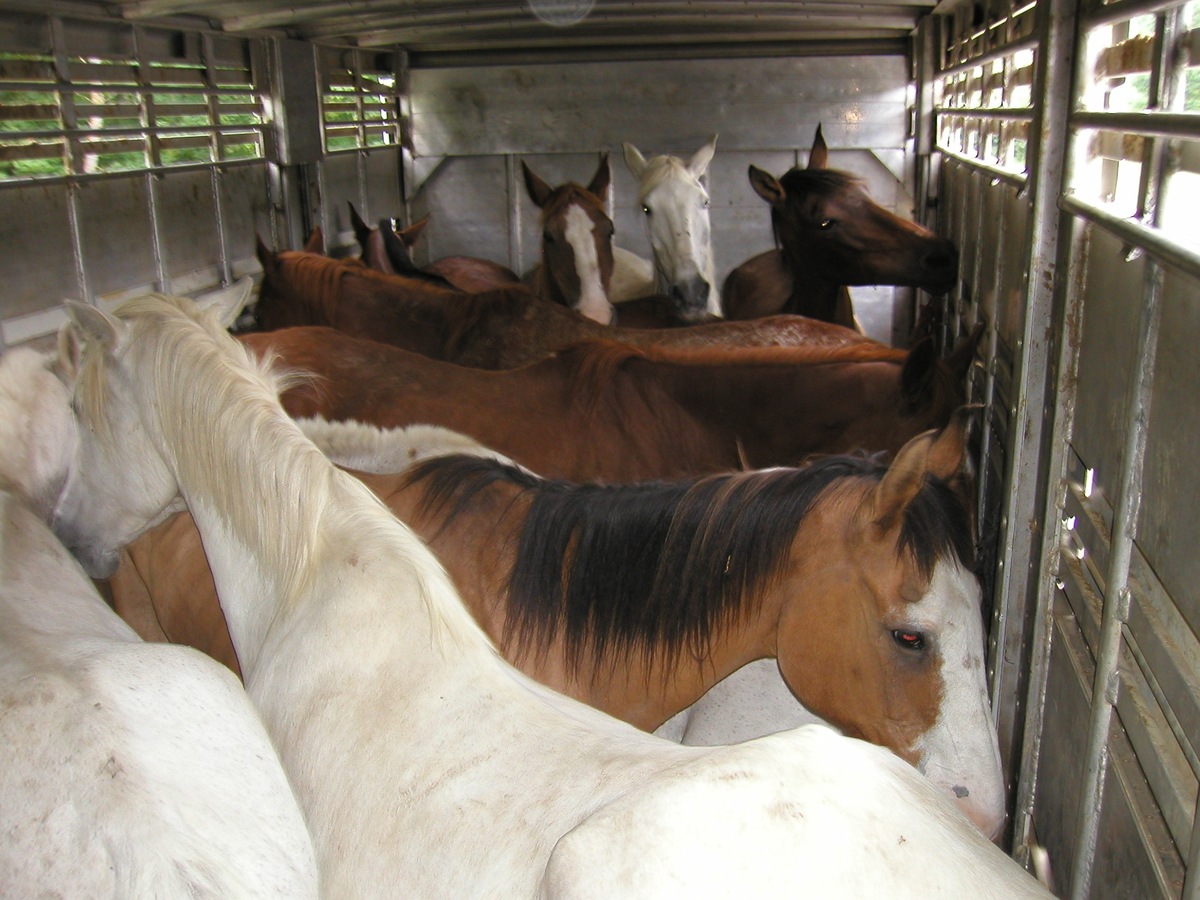

Horse transportation: the end of the road
Every year, thousands of famished horses are driven to the slaughterhouse over long distances. This transportation is as cruel as their slaughter. Ten years have gone by since this unforgettable rescue by One Voice, and nothing has changed. It is time to reconsider the status of horses!
On a hot June day in 2005, in Haute-Marne, the scorching sun is bleaching the wheat in this North-Eastern region of France. One Voice’s investigator, Eric, is on duty alongside the police where a Spanish lorry parked in a motorway rest area has caught their attention. On opening the doors, they are greeted with a horrible sight. Twenty seven horses are squashed into the tiny overheated space. Destined for a Belgian abattoir, these unhappy individuals, exhausted from a life of slavery, are now being got rid of; the last bit of profit being squeezed from their meat.
Scrawny, thirsty and starving, the horses are extremely weak. A mare is collapsed on the faeces and urine soaked floor. She attempts to lift her head. Her eye is damaged and her body bruised by hoof marks. Blood is splattered around from her head hitting the floor and the walls during the journey. The driver tries to get her onto her feet by pulling her mane, in vain. She succumbs before the emergency vet can arrive. Her autopsy later reveals that she was not fed or given water for more than 48 hours before she died of exhaustion. In another corner of the lorry, another horse is unable to move. His back foot is fractured. The decision is made to put an end to his suffering. A third will survive for only a few days.
Thanks to One Voice and the police’s rapid response, the survivors are unloaded onto the motorway rest area where they receive first aid, water and hay. One Voice files a complaint for acts of cruelty the same day. A few days later, the judge decides to give us custody of the surviving 24 horses and we take on their care, homing them with trusted people. The trader tries to recover his goods but Spain refuses to take back the horses. Following much difficult negotiation, the agricultural minister agrees that the animals, legally destined for the butchers, are spared to live a peaceful life until their last days. Never has such a decision been taken. This time, our friends were saved for good!
This great triumph in 2005 is one example of the constant fight led by One Voice’s crisis centre Zoe against abuse, undergoing detailed investigations, complex legal procedures and sometimes harrowing seizures for the investigators.
But the fight must be stepped up a level. In order to protect horses from this unwarranted criminal transportation, the law must change! One Voice is appealing that this species, our friend for thousands of years now, is classed as a pet and no longer as livestock. This would mean an end to the consumption of horse meat. All of this campaigning demands energy, patience and above all the means. Please help One Voice protect the horses. They need us!